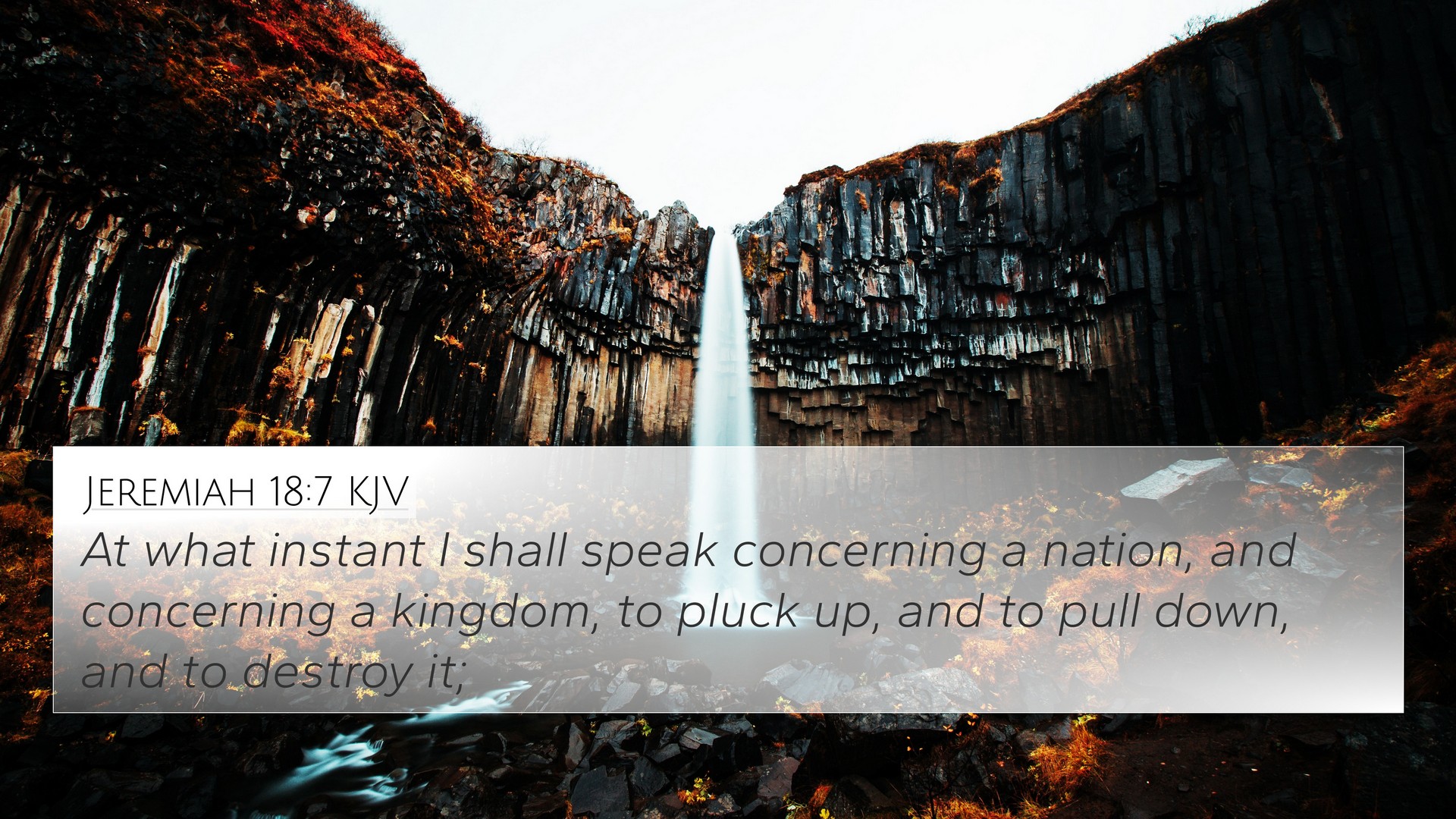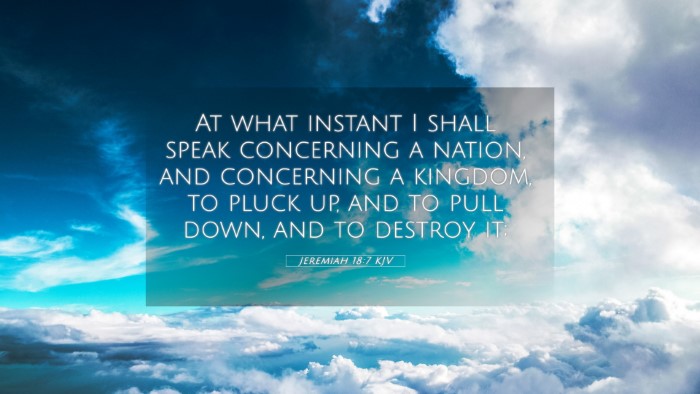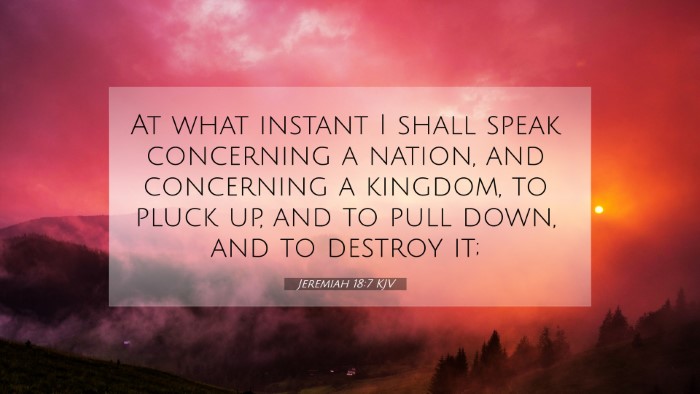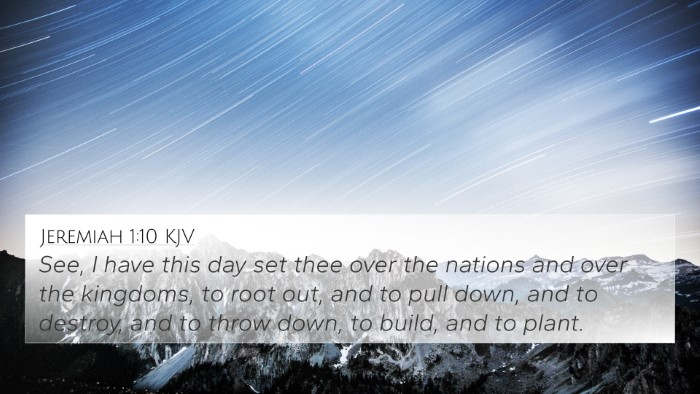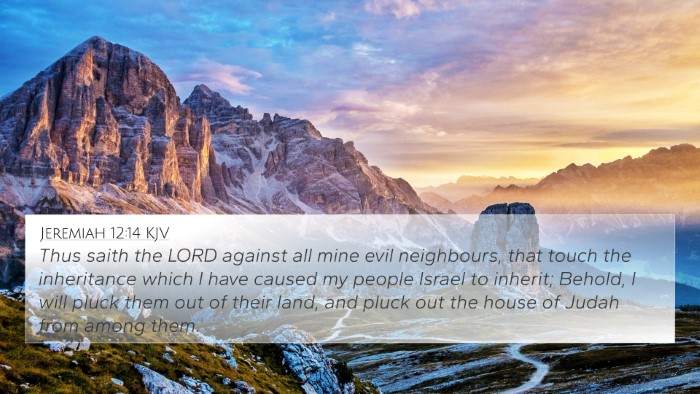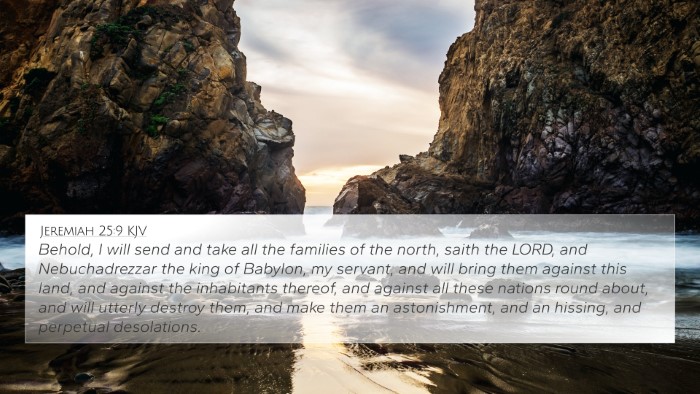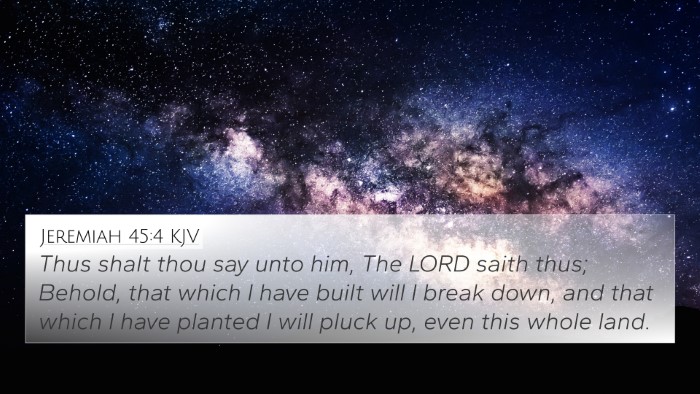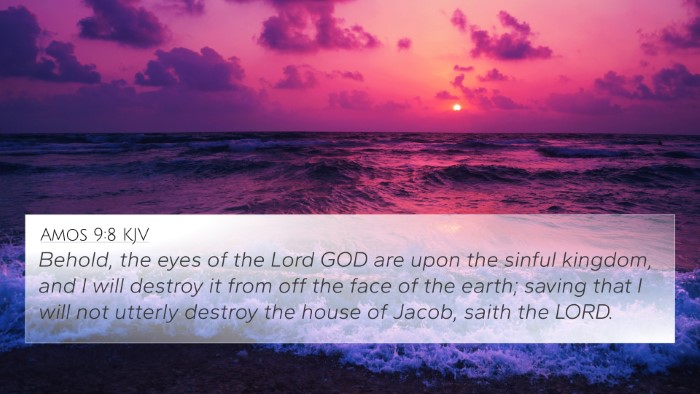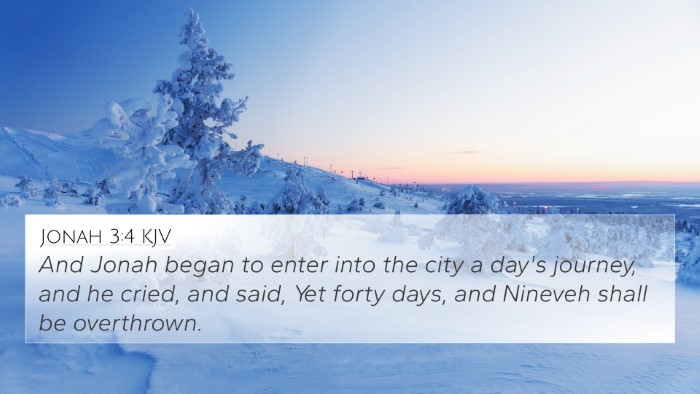Understanding Jeremiah 18:7
Jeremiah 18:7 states:
"At what instant I shall speak concerning a nation, and concerning a kingdom, to pluck up, and to pull down, and to destroy it;" (Jeremiah 18:7 KJV)
This verse underscored God's sovereignty and authority over nations. Through the image of a potter shaping clay, God communicates the potential for both destruction and reconstruction of nations based on their actions and obedience to divine will.
Meaning and Interpretation
The primary message of Jeremiah 18:7, as highlighted in various commentaries, can be summarized as follows:
- Divine Sovereignty: God has the power to alter the fate of nations, as He can decide to destroy or redeem based on their unrighteousness or righteousness.
- Nations and Accountability: The verse teaches that nations are accountable to God. When a nation turns from evil, God might relent from the disaster He planned.
- Communication of Intent: The verse emphasizes how God communicates His intentions regarding nations, warning them to turn from their wicked ways to avoid destruction.
Commentary Insights
Integrating perspectives from Matthew Henry, Albert Barnes, and Adam Clarke, we can extract profound insights:
- Matthew Henry: Describes God's declaration as a testimony to His omnipotence, suggesting that the shaping and reshaping of nations are as easy for Him as the potter shaping clay. Henry emphasizes God's readiness to act based on the behavior of the nations.
- Albert Barnes: Provides a more pastoral view, noting that the intent of God is not only to destroy but also to offer opportunities for repentance. He highlights the conditional nature of God's judgments—rooted in the moral behavior of nations.
- Adam Clarke: Expands upon the metaphor of the potter, discussing the interactive relationship between God and humanity. He stresses that divine judgment serves both as a warning and a chance for redemption.
Bible Verse Cross-References
This verse connects deeply with various other scripture passages that discuss the theme of divine judgment and mercy:
- 2 Chronicles 7:14: "If my people, which are called by my name, shall humble themselves, and pray, and seek my face, and turn from their wicked ways; then will I hear from heaven, and will forgive their sin, and will heal their land."
- Isaiah 45:7: "I form the light, and create darkness: I make peace, and create evil: I the Lord do all these things."
- Jeremiah 26:3: "If so be they will hearken, and turn every man from his evil way, that I may repent me of the evil, which I purpose to do unto them because of the evil of their doings."
- Ezekiel 18:30: "Therefore I will judge you, O house of Israel, every one according to his ways, saith the Lord God. Repent, and turn yourselves from all your offenses; so sin will not be your downfall."
- Romans 9:20-21: "Nay but, O man, who art thou that replyest against God? Shall the thing formed say to him that formed it, Why hast thou made me thus? Hath not the potter power over the clay?"
- Revelation 18:20: "Rejoice over her, thou heaven, and ye holy apostles and prophets; for God hath avenged you on her."
- Matthew 3:10: "And now also the axe is laid unto the root of the trees: therefore every tree which bringeth not forth good fruit is hewn down, and cast into the fire."
- Psalm 75:7: "But God is the judge: he putteth down one, and setteth up another."
- Micah 1:3: "For, behold, the Lord cometh forth out of his place, and will come down, and tread upon the high places of the earth."
- Daniel 2:21: "And he changeth the times and the seasons: he removeth kings, and setteth up kings: he giveth wisdom unto the wise, and knowledge to them that know understanding."
Thematic Bible Verse Connections
In connecting themes across scripture, we observe the cyclical nature of sin, judgment, repentance, and restoration:
- The Cycle of Sin and Redemption: The theme of a nation’s turning from evil and seeking God’s mercy recurs throughout scripture, highlighting the possibility of restoration.
- God's Desire for Repentance: In both Old and New Testaments, God expresses a yearning for His people to turn from their sin, evident in Jeremiah, the Gospels, and the writings of the Apostles.
- Judgment and Hope: While God's judgment is certain, His offer of hope and redemption remains a dominant theme, advocating that divine intervention can lead to unexpected outcomes—even in dire circumstances.
Tools for Bible Cross-Referencing
To further explore these connections, several tools and resources can assist in cross-referencing biblical texts:
- Bible Concordance: A valuable tool for finding specific keywords and themes across different verses.
- Bible Cross-Reference Guide: Guides that detail which verses correspond or relate to one another thematically or contextually.
- Cross-Reference Bible Study: Methods that systematically explore the connections between verses to deepen comprehension of the text.
- Comprehensive Bible Cross-Reference Materials: Resources that compile extensive cross-references, facilitating a richer study experience.
How to Use Bible Cross-References
Utilizing Bible cross-references effectively enhances study and understanding:
- Identifying Connections: Look for verses that share thematic elements, especially between the Old and New Testaments.
- Dive Deeper into Context: Analyze how different biblical authors address similar themes in diverse circumstances.
- Practical Application: Apply insights gained from cross-referencing to personal faith journeys, sermons, and teachings.
Conclusion
Jeremiah 18:7 encapsulates the profound truth of God's authority over nations and His desire for them to turn to righteousness. By using cross-references, we can build a more comprehensive understanding of this verse and its implications for our lives and those around us.
